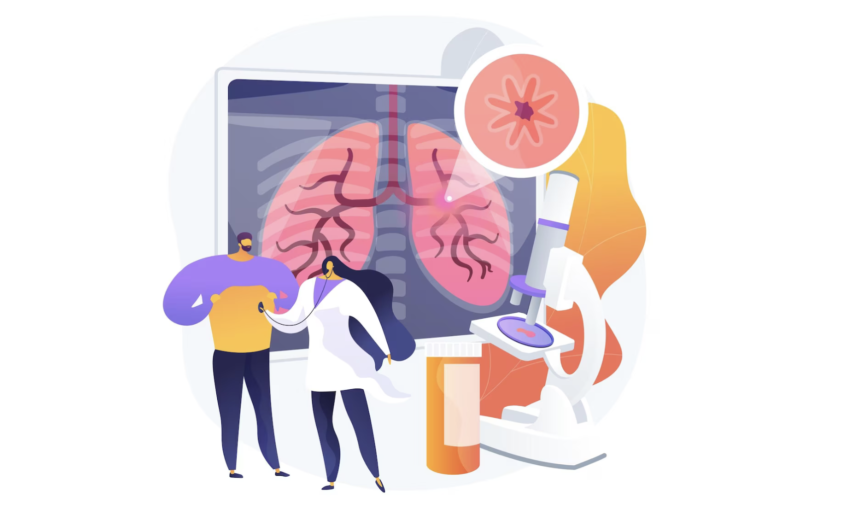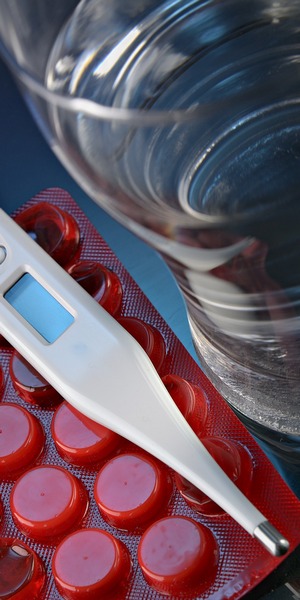The Ultimate Guide to the Pulmonary Hypertension Diet

When it comes to managing pulmonary hypertension, incorporating a well-balanced and nourishing diet is crucial. A pulmonary hypertension diet focuses on promoting heart health, managing symptoms, and supporting overall respiratory well-being. By making conscious choices about what you eat, you can positively impact your condition and improve your quality of life.
Understanding Pulmonary Hypertension: Causes, Symptoms, and Treatment
Before delving into the specifics of a pulmonary hypertension diet, it’s essential to have a basic understanding of the condition itself. Pulmonary hypertension is a progressive disorder characterized by high blood pressure in the arteries of the lungs, which puts strain on the heart and can lead to serious complications. Let’s explore the causes, symptoms, and treatment options for pulmonary hypertension.
Causes of Pulmonary Hypertension:
- Primary Pulmonary Hypertension (PPH): This rare form of pulmonary hypertension has no known cause and is often hereditary;
- Secondary Pulmonary Hypertension: It occurs as a result of an underlying condition, such as:
- Chronic lung diseases (e.g., chronic obstructive pulmonary disease [COPD], interstitial lung disease);
- Heart diseases (e.g., congestive heart failure, congenital heart disease);
- Blood clots in the lungs (pulmonary embolism);
- Connective tissue diseases (e.g., systemic lupus erythematosus, scleroderma);
- Sleep apnea;
- Liver diseases (e.g., cirrhosis);
- HIV infection.
Symptoms of Pulmonary Hypertension:
- Shortness of breath, especially during physical activity;
- Fatigue and weakness;
- Chest pain or pressure;
- Rapid heartbeat (tachycardia);
- Dizziness or fainting spells;
- Swelling in the ankles, legs, and abdomen (edema).
Treatment of Pulmonary Hypertension:
- Medications: Depending on the type and severity of pulmonary hypertension, your healthcare provider may prescribe medications to manage symptoms, improve heart function, and dilate blood vessels. These medications may include calcium channel blockers, endothelin receptor antagonists, phosphodiesterase-5 inhibitors, or prostacyclin analogs;
- Oxygen Therapy: If oxygen levels are low, supplemental oxygen therapy can help improve breathing and increase oxygen saturation in the blood;
- Lifestyle Modifications: Making certain lifestyle changes can positively impact pulmonary hypertension, such as:
- Following a heart-healthy diet, as discussed in the previous section;
- Engaging in regular exercise, under the guidance of your healthcare provider, to improve cardiovascular fitness;
- Avoiding exposure to high altitudes and extreme temperatures;
- Managing stress levels and practicing relaxation techniques;
- Avoiding tobacco smoke and secondhand smoke;
- Surgery and Procedures: In some cases, surgical interventions may be necessary. These can include lung transplantation, atrial septostomy (creating a hole between the heart’s upper chambers), or placement of a pulmonary artery catheter to monitor pressure levels.
It’s crucial to work closely with a specialized healthcare team, including pulmonologists and cardiologists experienced in managing pulmonary hypertension, to develop an individualized treatment plan. Regular monitoring and follow-ups are essential to track disease progression and make necessary adjustments to treatment.
Remember, pulmonary hypertension is a complex condition, and the information provided here serves as a general overview. Always consult your healthcare provider for a comprehensive evaluation, accurate diagnosis, and personalized treatment recommendations tailored to your specific needs.
Pulmonary Hypertension Diet: Tips for a Heart-Healthy Lifestyle
Maintaining a healthy diet is crucial for managing pulmonary hypertension (PH) and supporting overall heart health. While there is no specific diet that can cure PH, certain dietary choices can help alleviate symptoms, reduce complications, and improve your quality of life. In this section, we’ll explore some key considerations and provide a list of foods to include in your pulmonary hypertension diet.
- Heart-Healthy Fats:
- Incorporate sources of healthy fats into your diet, such as avocados, nuts, seeds, and olive oil. These fats can help reduce inflammation and provide essential nutrients for cardiovascular health;
- Include fatty fish like salmon, mackerel, and sardines, which are rich in omega-3 fatty acids. Omega-3s have been shown to support heart health and may have potential benefits for individuals with PH.
- Nutrient-Dense Foods:
- Opt for nutrient-dense foods that provide essential vitamins, minerals, and antioxidants. Include plenty of fruits, vegetables, whole grains, lean proteins, and legumes in your meals;
- Focus on colorful fruits and vegetables, such as berries, leafy greens, bell peppers, and citrus fruits, which are rich in antioxidants and beneficial plant compounds.
- Sodium Restriction:
- Limit your sodium intake to manage fluid retention and reduce strain on your heart. Avoid processed foods, fast food, and excessive salt in cooking;
- Opt for fresh, homemade meals prepared with herbs, spices, and other flavorful ingredients to enhance taste without relying on salt.
- Fluid Management:
- Monitor your fluid intake and follow your healthcare provider’s recommendations for fluid restrictions, if applicable. Maintaining a proper fluid balance is crucial for individuals with PH;
- Stay hydrated by drinking water throughout the day but be mindful of your specific fluid restrictions.
- Caffeine and Alcohol:
- Limit your consumption of caffeine and alcohol, as they can potentially exacerbate symptoms of PH and interfere with medication effectiveness;
- Opt for decaffeinated beverages or herbal teas as alternatives to caffeinated drinks, and enjoy alcohol in moderation, if permitted by your healthcare provider.
- Small, Frequent Meals:
- Consider eating smaller, more frequent meals rather than large meals, which can cause discomfort and put extra strain on your heart;
- Focus on portion control and listen to your body’s cues of hunger and fullness.
It’s important to note that everyone’s dietary needs may vary, and it’s crucial to work with your healthcare provider or a registered dietitian to create a personalized pulmonary hypertension diet plan. They can provide guidance tailored to your specific needs, taking into account your medications, overall health, and any other medical conditions you may have.
In addition to dietary considerations, remember to maintain a healthy lifestyle by engaging in regular physical activity, managing stress levels, getting adequate sleep, and avoiding smoking. These lifestyle factors can complement your diet and contribute to better overall heart health.
By making conscious choices and adopting a heart-healthy pulmonary hypertension diet, you can support your well-being, manage symptoms, and enhance your quality of life. Always consult with your healthcare team for personalized advice and guidance on managing your condition.
Living Well with Pulmonary Hypertension: Tips for Self-Care
In addition to medical treatment, self-care plays a vital role in managing pulmonary hypertension and improving overall well-being. Here are some self-care tips to help you live well with pulmonary hypertension:
- Educate Yourself: Learn as much as you can about pulmonary hypertension to better understand your condition, its management, and potential complications. Stay up-to-date with the latest research and treatment options;
- Support System: Build a strong support network of family, friends, and support groups who can provide emotional support and practical assistance when needed. Connecting with others who have pulmonary hypertension can provide valuable insights and a sense of community;
- Emotional Well-being: Focus on your mental and emotional health. Manage stress through relaxation techniques, mindfulness, and engaging in activities that bring you joy and relaxation;
- Physical Activity: Engage in regular physical activity within the limits set by your healthcare provider. Exercise can help improve cardiovascular fitness, stamina, and overall well-being. Choose low-impact activities that are appropriate for your condition, such as walking, swimming, or stationary cycling;
- Rest and Sleep: Get adequate rest and prioritize quality sleep. Develop a bedtime routine that promotes relaxation and establish a comfortable sleep environment. If you experience sleep disturbances, discuss them with your healthcare provider;
- Medication Management: Take medications as prescribed by your healthcare provider. Follow the prescribed dosage schedule, and communicate any concerns or side effects to your healthcare team;
- Monitor Symptoms: Stay vigilant about monitoring your symptoms and report any changes or worsening symptoms to your healthcare provider promptly. Regular check-ups and monitoring tests are crucial for tracking disease progression and making necessary adjustments to your treatment plan;
- Stay Hydrated: Drink enough fluids to maintain proper hydration, as recommended by your healthcare provider. Proper hydration can help support cardiovascular health and overall well-being;
- Plan Ahead: Plan and prioritize activities to conserve energy and avoid overexertion. Pace yourself and take breaks when needed. It’s important to find a balance between staying active and allowing time for rest and recovery;
- Stay Positive: Maintain a positive outlook and focus on the aspects of your life that bring you joy and fulfillment. Surround yourself with positivity and engage in activities that uplift your spirits.
Remember, self-care is a continuous process, and it’s important to adapt your self-care routine as needed. Regular communication with your healthcare team is essential for monitoring your condition and making necessary adjustments to your treatment plan or lifestyle recommendations.
Conclusion
A pulmonary hypertension diet plays a vital role in managing symptoms, supporting cardiovascular health, and improving overall well-being. By adopting a heart-healthy approach to eating, focusing on nutrient-rich foods, and avoiding triggers, you can take proactive steps towards optimizing your respiratory health. Remember to consult with your healthcare provider or a registered dietitian to tailor a diet plan that suits your specific needs and to ensure the best possible outcomes. Embrace the power of nutrition and make positive changes for a healthier, happier life with pulmonary hypertension.








